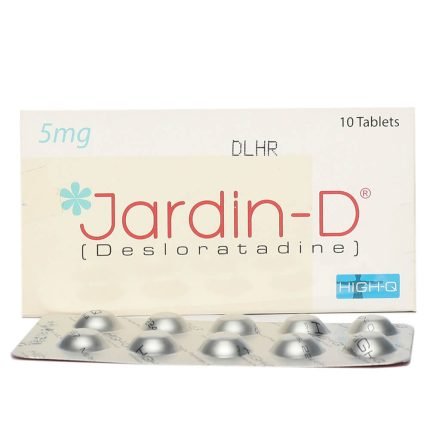Paliris XR 3 mg tablet contains the active ingredient Paliperidone, which is an antipsychotic medication. It belongs to the class of drugs known as atypical antipsychotics. Paliperidone is the active metabolite of another antipsychotic medication called Risperidone. The extended-release formulation of Paliris XR allows for once-daily dosing.
Uses:
- Schizophrenia: Paliris XR is primarily prescribed for the treatment of schizophrenia, a mental disorder characterized by hallucinations, delusions, disorganized thinking, and emotional flatness.
- Bipolar Disorder: It may also be used in the treatment of bipolar disorder (manic depression) to control episodes of mania and stabilize mood.
Side Effects:
Like all medications, Paliris XR may cause side effects, although not everyone experiences them. Common side effects may include:
- Extrapyramidal Symptoms (EPS): These can include parkinsonian-like symptoms such as tremors, rigidity, and bradykinesia.
- Weight Gain: Some individuals may experience weight gain while taking Paliris XR.
- Drowsiness or Fatigue: Feeling sleepy or tired is a possible side effect.
- Dizziness: Paliris XR might cause dizziness in some users.
- Gastrointestinal Disturbances: This may include nausea, constipation, or dry mouth.
- Increased Prolactin Levels: It can lead to elevated prolactin levels, which may cause breast enlargement and changes in menstruation.
- Metabolic Changes: Paliris XR could potentially lead to changes in blood sugar levels and cholesterol levels.
- Orthostatic Hypotension: Some individuals may experience a drop in blood pressure upon standing, leading to dizziness.
- Sexual Dysfunction: Paliperidone may lead to sexual problems in some patients.
When Not to Use:
- Allergy: Paliris XR should not be used in individuals with a known hypersensitivity or allergy to Paliperidone or any other components of the medication.
- Dementia-Related Psychosis: Paliris XR is not indicated for the treatment of dementia-related psychosis, as it may increase the risk of stroke and mortality in elderly patients with this condition.
- Severe CNS Depression: It should not be used in patients with severe central nervous system (CNS) depression or coma.
- Seizures: Paliris XR should be used with caution in individuals with a history of seizures, as it may lower the seizure threshold.
- Pregnancy and Breastfeeding: It is not recommended to use Paliris XR during pregnancy or while breastfeeding, as its safety in these situations has not been established.
- Severe Renal Impairment: The dosage of Paliris XR should be adjusted in individuals with severe renal impairment or end-stage renal disease.
- Liver Impairment: Paliris XR should be used with caution in patients with liver impairment, and dosage adjustments may be necessary.
Always follow the prescribing doctor’s recommendations and inform them of any existing medical conditions or medications you may be taking to ensure safe and effective use of Paliris XR.














Reviews
There are no reviews yet.